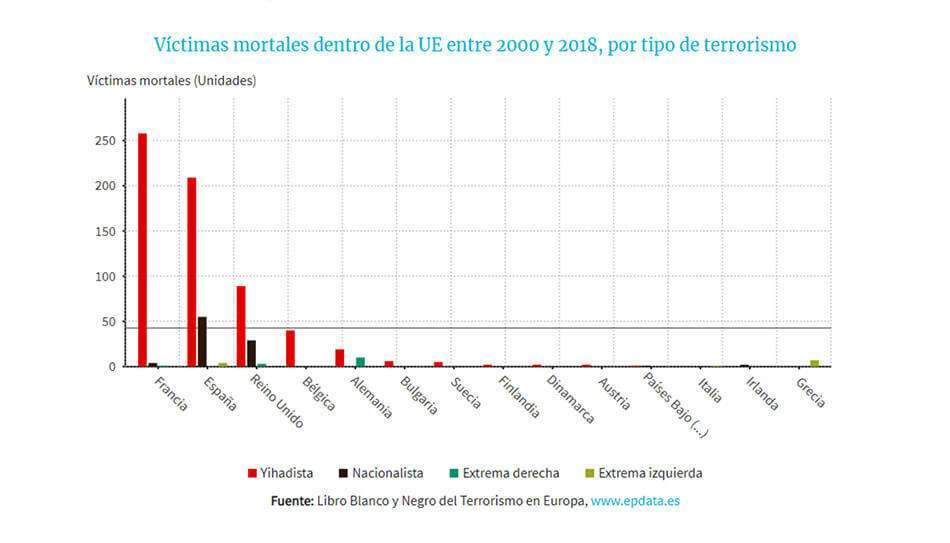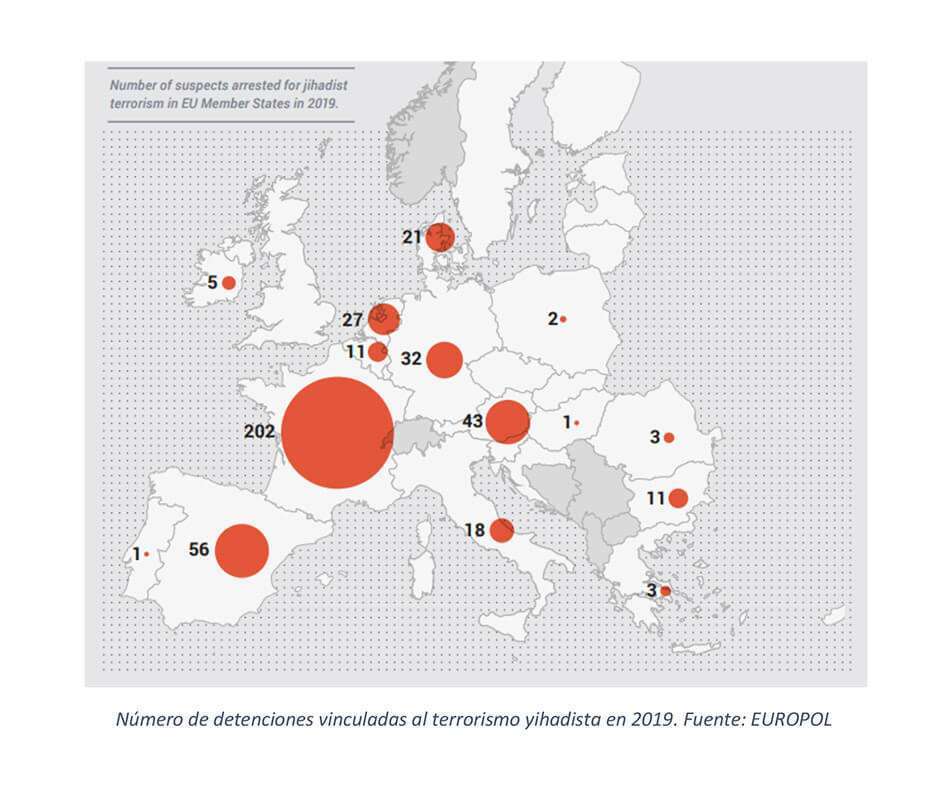Spanish absence from the debate on the fight against terrorism

No European country will fight Jihadist terrorism alone, a poison that has been infecting our societies for many years. Not even Spain was able to combat ETA terrorism alone, which is much more limited territorially. It was only when France had the courage to cease being a sanctuary for those who were attacking our country that it was able to defeat the axe and the snake. Police collaboration between the two countries was key enough, and this is relatively recent, to have left many lessons learned in this respect on issues such as information exchange, the consequences of non-existent internal borders, financing flows, etc. It is therefore notable that Spain is not speaking with authority in this debate on antiterrorist measures, a discussion that has returned to the European institutions days after several attacks on Community soil. And this absence is due to political issues: either Spain, always overwhelmed by domestic quarrels, does not raise its voice and claims its position, or France has not seen Spain as a leading ally, at least from the political viewpoint, in this respect. Perhaps, and this would be the worst of all, the two things converge.
Spain is the European country whose legislation and justice system are best adapted to the fight against terrorism - the Belgian police, for example, were unable to gain access to the home of Salah Abdeslam, one of the terrorists who fled the Bataclan attack, as they were unable to carry out searches between 9 p.m. and 5 a.m. Another example is that until 2016 only Spain, France and Italy had specific legislation on terrorism. Our country furthermore has state security forces and corps with a long and sad but victorious history in combating terrorism. The Guardia Civil's Rapid Action Groups (RAG), with which the terrorist group ETA has been fought for years, are leading the formation of antiterrorist units in the Sahel countries with which to combat Jihadism. Spain is also one of the most active countries in the pursuit of terrorism-related crimes such as propaganda and indoctrination. In 2019, only France surpassed Spain in the number of arrests linked to Jihadist terrorism (202 as opposed to 56), and both head the list of countries that have suffered most deaths in recent years, either because of the particularity of Jihadist terrorism or because of terrorism in general. In short, Spain should be an unavoidable actor in Europe when addressing the fight against terrorism of any kind, but also, especially, that of Jihadist aetiology.

Therefore, Spain's own background in combating terrorism as well as collaborative relations with our neighbouring country in this task is surprisingly absent from the recent meeting of six, prior to the next European summit where these issues will be discussed in depth. In addition to Macron, Kurz and the European representatives Von der Leyen and Charles Michel, the German chancellor Angela Merkel and the Dutch prime minister Rutte attended this mini-summit. Spain was therefore once again left out of these discussions, which then set the agenda for the entire European summit. It is doing so, furthermore, on an issue on which it should no longer stand alone by virtue of its authority and experience in the field, but because our country is the only one with a physical border with the African continent, and one of the main routes of entry by sea to the European continent. The absence of Italy, the country from which the Nice terrorist gained access to French soil, and whose waters are visited by numerous vessels departing from coasts such as Libya, where terrorism has had a significant presence, is also noteworthy. Not to count on the Mediterranean countries in an area in which the migratory issue has a considerable impact, as witnessed recently, and in which Spain, together with France, is one of the main countries affected by terrorism, is a flagrant error, not only by Macron but also by the leaders of the European institutions.

In view of France's proposals to rethink the "Schengen" area or, rather, the external borders of this area and the possible extension of the role of the Frontex agency, it is worth asking why neither Spain nor Italy-in addition to Greece-was invited to the preliminary discussion of these aspects and why they are included among the rest of the European countries which, either because of their size, location or the "reduced" threat that terrorism, particularly Islamist terrorism, represents, play a secondary, albeit necessary, role in this debate. Other measures such as the one presented by Germany to restrict the entry of foreign imams and to protect the religious training of these religious leaders will have a greater impact if they are coordinated with the rest of the countries. Such coordination and joint action would send a clear and forceful message to those countries that encourage the radical proselytism of Islam and carry out more than proven interference in the Muslim communities present in our continent. To achieve this, not counting on Italy, and above all Spain, is the first major mistake.
